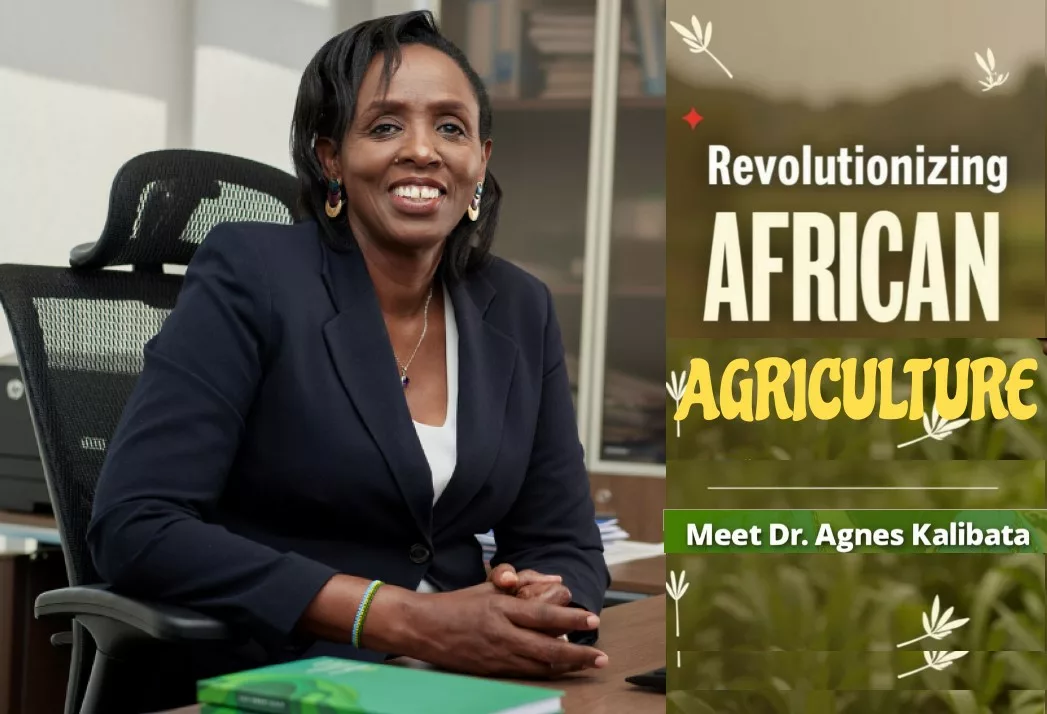|
Getting your Trinity Audio player ready...
|
The Alliance for a Green Revolution Africa (AGRA) applauded and embraced the 10-Year Fertilizer and Soil Health Action Plan and the Soil Initiative for Africa Framework adopted by African Heads of State at the African Union Fertilizer and Soil Health Summit.
The Soil Initiative for Africa (SIA) is an ambitious long-term effort to systematically improve the health and productivity of Africa’s soils. Improved soil condition will be achieved by scaling proven and locally adapted technologies, including balanced and efficient (inorganic and organic) fertilizer application, to improve productivity for all farmers and, in many cases, sequester greenhouse gases by putting in place policies, programs, and institutional structures (i.e., an effective soil management system for Africa) needed to improve and maintain soil fertility across Africa into the future.
The African Union Commission (AUC) mandated the development of this document, which presents the long-term Soil Initiative for Africa Framework, which was prepared following a consultative process with a wide range of stakeholders. The AUC further mandated the development of technical briefs and policy briefs in preparation for the Africa Fertilizer and Soil Health (AFSH) Summit, as well as an AFSH Action Plan. The Action Plan includes actions required to implement the first 10 years of the SIA and address the most pressing outcomes and recommendations from the technical and policy briefs.
Below, Spiked Online Media shares AGRA’s perspectives on the 10-Year Fertilizer and Soil Health Action Plan and the Soil Initiative for Africa Framework:
The commitments in the Action Plan and Initiative could not be more relevant or timely. These include:
- to expand domestic production and distribution of certified quality organic and inorganic fertilizers;
- to avail targeted agronomic recommendations, reverse land degradation and restore soil health;
- to fully operationalize the Africa Fertilizer Financing Mechanism Action Plan;
- to formulate and implement policies and regulations to create conducive environments for fertilizer and soil health interventions;
- to develop and promote systemic national capacity building for locally relevant fertilizer and soil health management practices and technologies;
- to promote African solidarity through knowledge sharing, training, development, and transfer programs; and
- to expand access to quality extension and advisory services on fertilizer and soil health both from public and private extension systems.
As the Action Plan and Initiative are implemented by AU Member States, key considerations regarding fiscal challenges, subsidy design and delivery, and policy and regulatory imperatives linked to fertilizer subsidies must be taken into consideration. These include:
- The burden of fertilizer subsidies on public finances and debt in Africa must be recognized as a pressing concern that demands immediate attention. These fertilizer subsidies feature prominently in many agricultural development strategies across the continent. Between 2017 and 2022 in AGRA’s 11 focus countries3, annual fertilizer subsidies averaged 123,000 mt at a cost of $35 million, reaching as high as 361,000 mt/year and $72 million/year. The strain that these subsidies exert on public resources cannot be ignored. The growing reliance on debt to finance these subsidies risks perpetuation of indebtedness, constraining fiscal flexibility and jeopardizing long-term economic stability.
- While fertilizer subsidies often boost productivity, income, and food security, they can only play a supporting role in agricultural transformation in Africa, not a leading one. It is imperative that we affirm the importance of holistic approaches to agricultural development that encompass a diverse range of interventions beyond subsidies. Subsidies alone cannot transform agriculture. While they may provide short-term relief, the long-term financial and social costs cannot be ignored.
- The significant financial burden on public resources imposed by fertilizer subsidies can crowd out other vital investments essential for sustainable growth in agriculture. With fertilizer subsidies accounting for as high as 85 percent of agricultural budgets, investments in such critical areas as agricultural research and development, irrigation, infrastructure, finance, and market access are impacted. As a result, the ability of governments to address the root causes of agricultural underdevelopment is severely constrained.
- Soil health improvement and maintenance are critical to agricultural transformation but mostly underemphasized. Correcting this inconsistency entails scaling up soil conservation and management practices, such as soil testing, organic matter addition, and crop rotation, to improve soil fertility and resilience to climate change.
- Value-for-money from all investments in fertilizer subsidies must be prioritized. Smart subsidies are therefore essential but rarely designed and never fully implemented. AGRA’s 2016/17 recommendations for improved design and delivery of smart fertilizer subsidies remain largely unimplemented in its 11 focus countries. Such subsidies should: stimulate new demand and promote growth of existing supply chains for fertilizer without displacing existing commercial sales; encourage competition in fertilizer distribution channels and thereby promote efficiency in fertilizer use; and have carefully executed graduation and exit strategies.
- The lack of effective graduation and exit strategies in most fertilizer subsidy programs is especially damaging. The result is several unintended consequences including farmer dependency and fertilizer market disruption. Effective graduation and exit strategies must be based on clear criteria derived from objectively verifiable levels of farm and food system performance such as increases in cropping yields and incomes, efficient use of fertilizers and other agricultural resources, adoption of sustainable farming practices, and sustained market participation.
- Governments must strike a balance between supporting fertilizer subsidies and investing in interventions that will truly transform African agriculture and help alleviate the burden of debt on economies. By diversifying investment portfolios and focusing on interventions that foster innovation, enhance resilience, and promote inclusivity, governments can more effectively unlock the full potential of agricultural sectors and ensure sustainable growth for generations to come.






